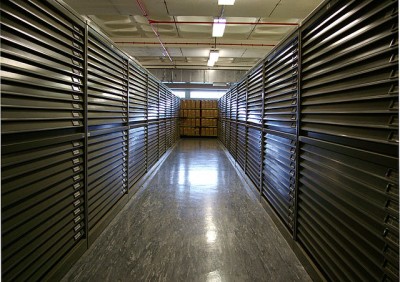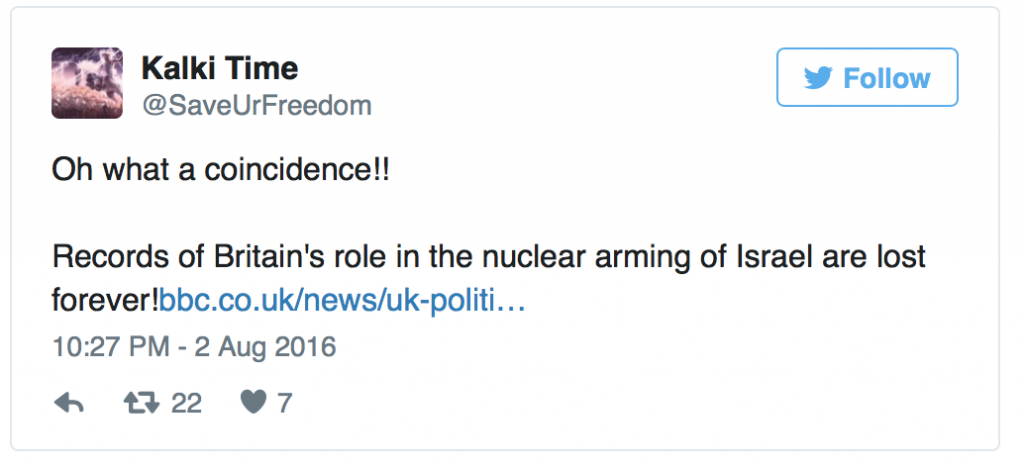“Military and Nuclear Collaboration” Files linking Britain to Israel’s Nuclear Weapons go Missing from National Archives

More than 400 records have gone missing from the repository in Kew, southwest London, including a 1947 letter from Winston Churchill and a Home Office document on the 1910 Suffragettes “disturbances.”
The Archives reassured the public it is following a “robust” plan to find the lost files.
The loss of the documents was uncovered following a BBC freedom of information (FoI) request, which found the last recorded knowledge of the 402 historical dossiers was January 2012.
Among them is a Foreign Office file titled ‘Military and nuclear collaboration with Israel: Israeli nuclear armament,’ in which the British government notes Israel’s intention to purchase nuclear weapons.
The document is thought to be linked to a United Nations resolution from 1978 listing the “increasing evidence” of the Middle Eastern country’s attempts at acquiring weapons of mass destruction.
This is not the only National Archives paper to report on Anglo-Israeli nuclear agreements. A 1958 document, made public by the BBC a decade ago, showed how Britain sold 20 tons of heavy water – one of the ingredients needed to generate plutonium – to Israel, to be used in the country’s top secret Dimona nuclear reactor.
The lost file is believed to have been part of a portfolio of official 1970s documents on arms control and nuclear disarmament.
Israel neither admits nor denies its possession of nuclear weapons and has never publicly tested one. It is universally believed to have them, however, but its official secrecy means it is unclear exactly how many.
It is thought that the files may have simply been misplaced and will soon be found. National Archives officials highlighted that less than 0.01 percent of the library’s 11 million public records disappear, accounting for around 100 files each year.
“We are a working archive with a robust, ongoing program dedicated to locating misplaced documents and many are subsequently found again after a thorough search,” a spokesperson for the Archives said.
Around 1,600 documents were reported missing between 2005 and 2011.
“The challenge is to ensure that you’ve got the systems to prevent that, because with every loss of a potential piece of archive you’re losing some history and understanding,” said Labour MP and All-Party Parliamentary Group on Archives and History vice-chair Tristram Hunt.
“You’re losing a sense of connection and you’re losing the fabric of the past.”


